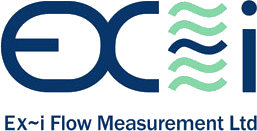Any exploration of upstream merger and acquisition trends and considerations has to start by stating the obvious, 2020 has been a turbulent time. It is not just in oil and gas that uncertainty has reigned, but in all aspects of the economy and society. Therefore, anything said in an analysis of 2020 and predictions for 2021 have to be delivered with a caveat. It is possible events may overtake the conclusions drawn.
Trends
The trends seem to point to a broad spread of transaction types, and many transactions are strategic, to help organisations deal with the general market uncertainty. A lot of major companies are looking to rationalise their portfolio, continuing with a program to shed any non-core assets.
What is significant is the trend towards the creative structuring merger and acquisition transactions. Such deals have included sellers offering loans to buyers who cannot access debt finance. The imaginative approach to financing also stretches to address the costs of decommissioning liabilities, which might have otherwise acted as a deterrent to buyers.
The increase in LNG-related programs continues even though the market is saturated, and the prices have dropped. Investors see this market as a longer-term investment, and growth will be slow as LNG projects continue to be under construction. LNG is seen as a cleaner alternative to coal and oil and as a means of lowering carbon output in the future. While there is a short-term crisis resulting from COVID-19, with some cargoes being rejected, these difficulties are likely temporary.
Challenges
When exploring trends, it is also essential to consider the ongoing challenges. The continued restrictions of the travel bans, social distancing and requirement to work from home mean mergers and acquisitions are being undertaken almost entirely remotely. This remote working means virtual presentations, question and answer sessions and due diligence. While remote working has the potential to be more convenient, it has resulted in slippage in the timeline of deals. Many parties feel uncomfortable closing transactions without face-to-face negotiations and no physical data – such as seismic and geological data.
The challenges extend beyond the close of the deal, as the COVID-19 crisis is also delaying regulatory and counterparty consents that allow the transaction to complete. These delays are acute in emerging markets where it is further limited by the lack of commonly followed procedures and expertise that allows for contingencies to be designed with ease.
Considerations
Finally, consideration has to be given to the natural caution shown by all investors who are still reeling from the collapse of the oil price. The budgets approved during 2020 for the 2021 financial year are likely to be much more conservative. Most E&P companies will announce cuts to capital expenditure and exploration budgets. In contrast, this may result in an increase in merger and acquisition activity as a means of consolidating the upstream sector.
Ex~i Flow is proud to support the oil and gas industry. Our consultants are happy to discuss how metrology could bring greater effectiveness and efficiencies.
